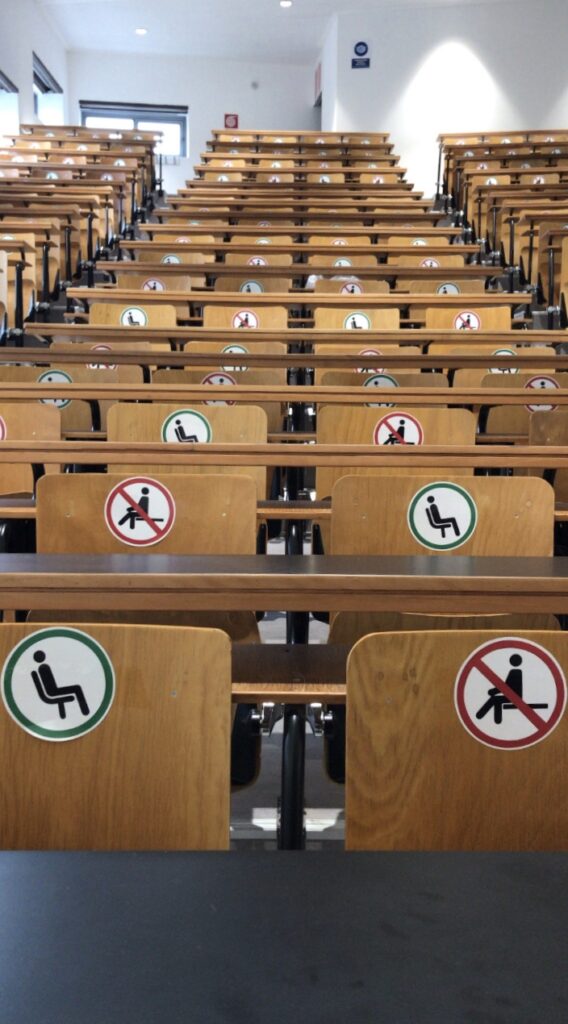Lectures
Students and teachers’ freedom
Sitting a class in a lecture hall, that enables confrontation with the someone’s presence that thinks about me, that might not be understanding something just like me, clearly allows me to feel less lonely and makes the context less burdensome. College time is a time for growth in every aspect, human, rational as well as didactic, it is a period of training for the job industry, but also the opportunity to become adults and responsible people in our society. Therefore, I couldn’t be more interested in my University’s current situation. How will teaching take place? Is it true that teachers and students need to get in touch and work together in order to have an efficient college? Or, are new modalities worthwhile and more practical? As I was mentioning earlier, being in college offers a social aspect which is very important to the majority of students given they are young and curious, qualities that can be used in relationships with course mates, yet is it beneficial for work in college? Often, huge classes of Politecnico, with hundreds of students, generated a certain distance between lecturers and myself, as if they were people that you can understand but not discover. In this way, it might not be so different from e-learning… However, I had the desire to know their point of view on this topic and what changes they have noticed in their teaching. I therefore asked to interview some of them and I discovered that they are alive, they are extremely attached to relationships with their students and to the accuracy of lessons. They also feel “the class lacking” , they miss seeing disoriented or bored expressions on their students’ faces as a sign that a pause is needed or that something is going wrong. They miss being in touch with real people and not just through the Webex chat . This led me to think that as I don’t want to be seen just as an ID number, they don’t want to be used as switches pause/play. One of the teachers told me that a lesson, both online and “standard”, can be called worthwhile only when students and teachers both feel co-responsible for its outcome, as in when they look at each other with respect, looking to build something together. “Teaching is experience, all the rest is information”. Teaching, both educational and didactic, needs to start from a relationship that, at the very beginning it can be seen as casual and “free”, but it must become a responsible one, it must become a real choice. In the end, I realized that I have found what I care about for future lessons: having someone enthusiastic to follow that allows me to walk on my journey with seriousness, because the “service’s perfection” is not important, what really counts is the possibility to look for what is true.
Many thanks to Carlo Punta, Alberto Salioni, Alessandra Pedrocchi, Tommaso Agasisti.

